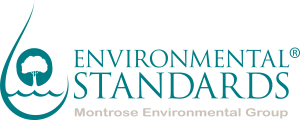Quality Assurance Program Development
Environmental Standards, Inc. has extensive experience in the preparation of project-specific QAPPs that document the sampling and analysis of QA and QC protocols necessary to achieve the project DQOs.
Quality Assurance Program Development includes the preparation of a number of project documents, such as quality assurance project plans (QAPPs), sampling and analysis plans (SAPs), and standard operating procedures (SOPs). Additionally, project-specific data quality objectives (DQOs) are developed to ensure the data generated will meet the objectives of the project.
A comprehensive QAPP leads to consistent quality of field sampling efforts and generation of reliable analytical data. We use our extensive experience to prepare QAPPs that fully consider DQOs and analytical processes, thereby avoiding the pitfalls of submitting a generic QAPP that may not adequately address all aspects of a project. Factors such as timeliness, cost efficiency, and an industry’s relationship with regulators can be negatively impacted if a poorly written or vague QAPP is submitted to a regulatory agency for review.
Why us
QAPPs
Data users have historically assumed that laboratory-reported results are absolute, accurate, and reliable because laboratories are professional firms certified by state and federal agencies. This assumption can be a costly mistake. It is prudent to have data validated by an independent third party. The validation of data by the firm that collected the samples, even when there is an experienced chemist with appropriate credentials on staff, may represent a conflict of interest. Consultants may be reluctant to qualify data due to sampling for which their firm is responsible.

Our Expertise
Some contractors may prepare and implement a QAPP without obtaining regulatory concurrence and proceed with the project “at risk.” Environmental Standards’ personnel provide a valuable service to our industrial clients by independently reviewing QAPPs prepared by technical environmental consultants and offering comments about the plan’s appropriateness, level of detail, and likelihood of acceptance by the receiving regulatory agency. Several Fortune 500 companies that utilize environmental consultants throughout the United States will not submit a QAPP to a regulatory agency until Environmental Standards has reviewed the plan and has verified that the QAPP is consistent with the company’s level of quality. Most companies simply contract Environmental Standards to prepare their QAPPs because of our expertise.
Data Quality Objective Development
Any environmental investigation must be conducted based on the assumption that the findings will be defended in a court of law so that data do not have to be recollected to defend a potential liability. To successfully use data in a court of law, every aspect of the investigation must have been appropriately documented. The objective of the investigation must be carefully developed at the project planning level, and the quality of the data must be consistent with the intended use. In other words, samples must be collected and analyzed in a manner that will afford the interpreter of the results with the best and most accurate information. In addition, laboratory analytical methods must provide detection limits suitable to the objective. Environmental Standards develops DQOs that are designed to generate data that meet project requirements.
The variability in site characteristics, the intended use of data, resource availability, and individual client needs make the preparation of a generic set of DQOs impossible. Our staff expertly defines data needs and specifies the criteria that enable the unique objectives of a project to be accomplished.

Sampling and Analysis Plans
Obtaining defensible data from field sampling operations is a critical first step in any type of environmental impact assessment. Unnecessary costs and delays can occur when a field sampling effort produces unrepresentative and invalid data. The Environmental Standards Chemistry and Geosciences Departments work together to prepare and review SAPs. A SAP must document the location and type of each sample, the correct sampling and analysis methods, and the proper number of QC samples to be included in the investigation in order to meet the project DQOs.
Standard Operating Procedures
It is advantageous to coordinate with contracted laboratories to generate project-specific analytical SOPs to control the qualitative and quantitative reliability of the data generated from analysis of environmental samples. When multiple laboratories are used to provide project analytical services, project-specific analytical SOPs will produce data that are directly comparable among the laboratories and will streamline the data validation procedure because the laboratories follow the same analytical protocols. The preparation of SOPs may seem unnecessary because the analytical method should specify all acceptance criteria; however, many of the current analytical methods, especially those in SW-846, contain unclear requirements that are often interpreted differently by analytical laboratories. Project-specific analytical SOPs eliminate method interpretation by laboratories and the subsequent generation of incomparable project data. The coordination resulting from SOPs is particularly important with respect to achieving the project DQOs and ensures that one set of quantitative criteria will be used to define and qualify data for usability.
Environmental Standards has developed a significant number of project-specific validation and laboratory auditing SOPs. The current US EPA validation documents are applicable to analytical methods that apply to contract laboratory program projects (CERCLA or Superfund, 1980, 1986). When analyses are performed by SW-846 methods (RCRA, 1976), validation SOPs must be applicable to RCRA methods and professional judgment must be exercised. The use of project-specific validation and laboratory auditing SOPs allows data users to make decisions with confidence.



